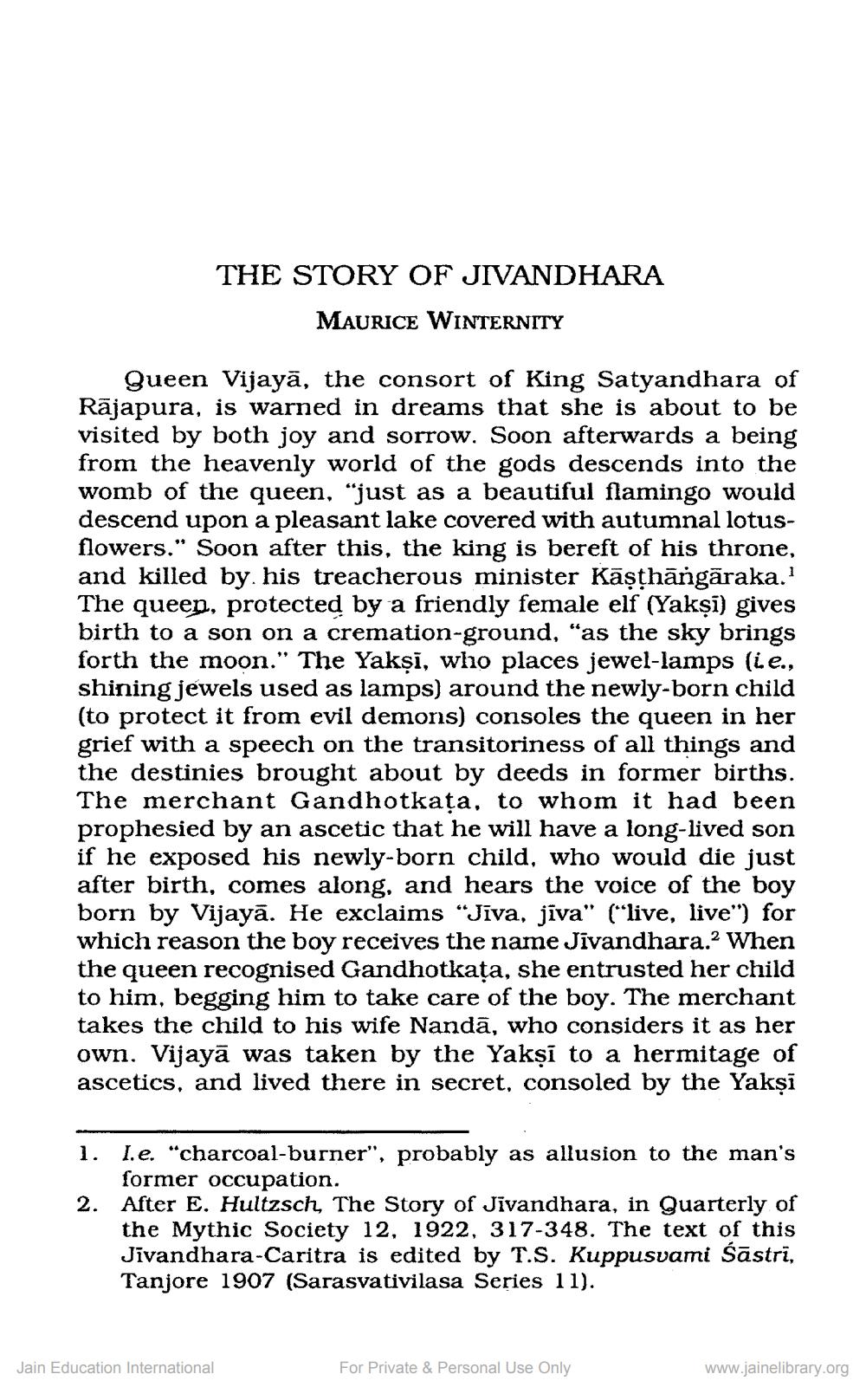________________
Queen Vijaya, the consort of King Satyandhara of Rajapura, is warned in dreams that she is about to be visited by both joy and sorrow. Soon afterwards a being from the heavenly world of the gods descends into the womb of the queen, "just as a beautiful flamingo would descend upon a pleasant lake covered with autumnal lotusflowers." Soon after this, the king is bereft of his throne, and killed by his treacherous minister Kāṣṭhāngāraka.1 The queen, protected by a friendly female elf (Yakṣi) gives birth to a son on a cremation-ground, "as the sky brings forth the moon." The Yakṣi, who places jewel-lamps (ie., shining jewels used as lamps) around the newly-born child (to protect it from evil demons) consoles the queen in her grief with a speech on the transitoriness of all things and the destinies brought about by deeds in former births. The merchant Gandhotkața, to whom it had been prophesied by an ascetic that he will have a long-lived son if he exposed his newly-born child, who would die just after birth, comes along, and hears the voice of the boy born by Vijayā. He exclaims “Jīva, jīva" ("live, live") for which reason the boy receives the name Jivandhara.2 When the queen recognised Gandhotkața, she entrusted her child to him, begging him to take care of the boy. The merchant takes the child to his wife Nanda, who considers it as her own. Vijayā was taken by the Yakṣi to a hermitage of ascetics, and lived there in secret, consoled by the Yakṣi
THE STORY OF JIVANDHARA
MAURICE WINTERNITY
1.
I.e. "charcoal-burner", probably as allusion to the man's former occupation.
2. After E. Hultzsch, The Story of Jivandhara, in Quarterly of the Mythic Society 12, 1922, 317-348. The text of this Jivandhara-Caritra is edited by T.S. Kuppusvami Śāstri, Tanjore 1907 (Sarasvativilasa Series 11).
Jain Education International
For Private & Personal Use Only
www.jainelibrary.org




